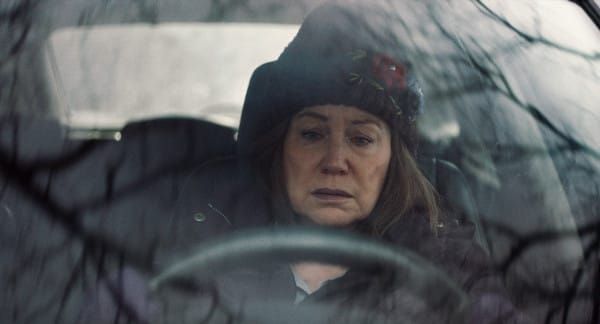Eye For Film >> Movies >> Diane (2018) Film Review
Diane
Reviewed by: Jennie Kermode

Diane (Mary Kay Place) is a supporting character given the lead and this film is all the better for it.
Cancer, addiction and religious conversion all feature: meaty stuff frequently given centre stage in Hollywood dramas but here pushed to the sidelines so that we can get to know a very ordinary woman in her late sixties who spends all her time looking after other people, and appreciate the ways in which she is extraordinary. It's not hagiographic; Diane is tired, resentful and capable of riding roughshod over other people's feelings. She can be quite obnoxious (sometimes delightfully so) but something she has never really done is take control of her own narrative. Skilled at holding everybody else's together, she prides herself on her resilience, but as she has to contend with one crisis after another she comes perilously close to losing her grip.

Place, who appears in almost every scene, has never been better. Though we spend only a few weeks in Diane's company, we can read a lifetime in her eyes, the way she carries herself, her patterns of speech. Wyatt Garfield's grainy cinematography captures every detail of her expressions and his rich yet dusky colour palette suggests a life whose true vitality as been subdued. Debbie DeVilla's production design is also excellent and adds further layers to the story as we see the space Diane has created for herself and the various things she has accumulated over the years. Kent Jones' direction is slow, measured and big on atmosphere, yet the dialogue sizzles with wit and the weight of what is unspoken.
What do we expect of a woman like Diane? Who is she supposed to be when seen in isolation? It's when her opportunities to care for others are taken away that she seems most vulnerable, dancing by herself, drinking too much and slumping in the corner of a bar whilst Right Said Fred's I'm Too Sexy plays in the background. An army of similar socially overlooked women provides support; they understand her experiences all too well. But Diane bears her share of responsibility for her circumstances. She has to learn to accept her separateness from others - especially her son, who may be troubled but is in his mid-thirties and still used to her doing his washing - in order to start building a life that is really her own.
This is a story told in snapshots; arguments in homes where Diane is always the outsider, supportive conversations in coffee shops where the lives of others are discussed in detail. Though the premise may make it sound grim, thee's a great deal of warmth here and quite a bit of comedy mingled with social observation. Jones finds magic in the mundane. This intelligent, wonderfully textured film deserves a wide audience.
Reviewed on: 23 Mar 2019














